By Anjum Choudhry Nayyar
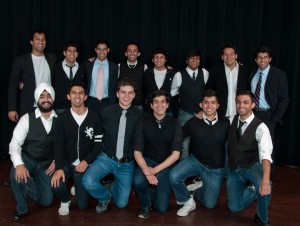 Many of us love sharing videos and pictures over facebook and I’m no different. The minute I shared a video from Penn Masala of their song, Viva la Vida/Jashn-e-Bahara, the comments from my fellow moms started coming fast and furious. I think a lot us were amazed at how seamless their effort is in combining Hindi songs with today’s to 40 music. As a mom of two, I imagine these songs resonating with my own kids someday. I thought I would take the opportunity to try and reach out to these young men and managed to snag them for an interview!
Many of us love sharing videos and pictures over facebook and I’m no different. The minute I shared a video from Penn Masala of their song, Viva la Vida/Jashn-e-Bahara, the comments from my fellow moms started coming fast and furious. I think a lot us were amazed at how seamless their effort is in combining Hindi songs with today’s to 40 music. As a mom of two, I imagine these songs resonating with my own kids someday. I thought I would take the opportunity to try and reach out to these young men and managed to snag them for an interview!
Penn Masala, is the world’s first and premier Hindi a cappella group, formed by a group of young students in 1996 at the University of Pennsylvania. the group took went on to perform for sold-out crowds across the US. Over the last decade, Penn Masala has spread the popularity of Hindi a cappella music abroad by performing in Toronto, London, and at the 2002 Star Screen Awards in Mumbai, where they had the honor of performing alongside the Indian sensation, Sunidhi Chauhan.
In September 2007, the group had the opportunity to perform with legendary musician A.R. Rahman at The Kennedy Center for Performing Arts. In 2009, the group performed at the White House for President Barack Obama’s Diwali celebration and signing of the AAPI Initiative. Attendees included President Obama, members of Congress, and distinguished community members. Here’s our interview with Leader, Harshil Shukla:
1. You formed Penn Masala in 1996 at U of Penn, what made you decide you all had the potential to become a successful group?
There’s never a way of knowing if something as experimental like this can work. Before Penn Masala there was South Asian music and then there was a cappella music, but the two had never been done together. The only thing the four founding members of Penn Masala had going for them was that they were passionate about combining Hindi and Western music. With the support of friends and South Asian societies across the North East and Canada, Penn Masala’s early tape recordings were well-received. It all started from there. Next thing you know, the group started receiving invitations to perform at college campuses around the US and even got an opportunity to be featured in the Kal Penn starred “American Desi” in 2001. Seven studio albums and many tours later, we are grateful to our fans all over the world for the support they’ve given us over the past 15 years.
2. What made you gravitate toward Hindi a cappella?
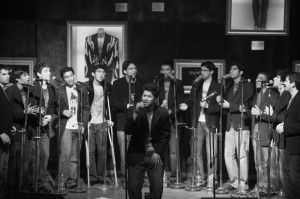
We’ve been fusing South Asian and Western music since our founding. This blend reflects our identity as individuals. Most of us grew up in America with Indian parents so from an early age learned to appreciate both of these musical traditions. Some of us were most strongly influenced by Bollywood music, some by classical Hindustani, and still others by Pakistani rock. Many of us grew up speaking Hindi or other South Asian languages at home so to sing Indian music was only natural. Still, there have been other members of the group not raised in South Asian households who are simply mesmerized by haunting Indian melodies and complex arrangements increasingly coming out of South Asia.
3. You’ve had the honour of being on stage with legendary musician A.R. Rahman, what was that like? Did you ever believe you would one day be on stage in the company of a legend like Rahman?
Since South Asian a cappella had never been done before Penn Masala, our first goal was to popularize it among audiences. Once it was clear that we had started to build a fanbase, our next challenge was attaining critical acclaim. We went on to work with some famous artists like Sunidhi Chauhan and DJ Suketu, but we never expected to get a chance to work with someone as eminent as A.R. Rahman. It was a phenomenal honor to perform with him at the Indian & American Achiever Awards at the Kennedy Center for Performing Arts. We literally grew up to Rahman’s music. He shaped so much of what Indian music is today and provided significant influence for our own music. This marked a new stage of success and notoriety for our a cappella group.
4. Can you talk about what led to your performance at the White house? Who took that call?
That experience was unlike any other. We were fortunate to be asked to perform at the White House for President Barack Obama’s Diwali celebration and the signing of an important Asian-American initiative. Actor Kalpen Modi of “Harold and Kumar” fame was working at that time as the Associate Director of the White House Office of Public Engagement in the Obama administration. As the liaison with the Asian-American and Pacific Islander communities, he contacted us a few weeks before the ceremony. Walking through the White House, meeting President Obama, performing for him and other dignitaries and having the President say the name “Penn Masala” to dozens of cameras were indeed surreal. It’s actually funny, because later on that year we went on to giving a similar performance for UN Secretary General Ban Ki Moon and he said to us “Was this as exciting as performing for Mr. Obama?”.
5. How important is the culture in your daily lives, how do you celebrate big cultural occasions at home?
Each of us hails from a different culture, but one thing that’s common among all of us is that we value our family traditions. Whether it’s taking part in the university’s Diwali celebrations, observing Shabbat, celebrating Pongal, or going to masjid every Friday, we definitely go out of our way to stay in touch with our cultures. Sometimes we even manage to surprise our parents when we come home and they see us doing things that they thought we’d forget while in college. Due to the vacation calender at at our university, Thanksgiving and Christmas really become the main cultural occasions that we celebrate at home with our families.
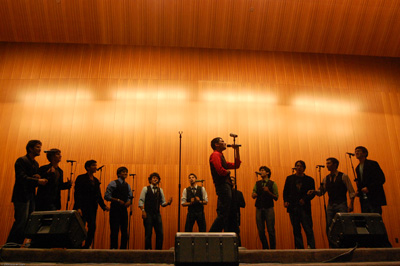 6. What challenges do you think parents in the South Asian community in our generation have today?
6. What challenges do you think parents in the South Asian community in our generation have today?
Having all grown up in hyphenated communities, we’ve seen first hand the difficulties that the previous generation had in trying to maintain their traditions while adapting to what is seen as mainstream American society. This current generation of parents in the community seems to be trying to strike that balance between teaching kids to appreciate aspects of their roots while still allowing them autonomy – the intellectual and ideological autonomy to craft their own identity based on the values of the country and community in which they actually live.
7. Can you talk about the differences in making your first album to making your latest one, “Panoramic”?
Over the course of the past 15 years, we have refined both the way we create music and the way we produce albums. As Indian music has matured over the years, we’ve tried to make sure that our music keeps up. That means more complex arranging, more textured and unique sounding leads, better integration with English music and more innovation in general. The knowledge we have gained over the years is simply by experience and what has been passed down by the guys who were in the group before us. Our sound has definitely changed throughout the years but we still pay homage to the earlier stuff because without it, we wouldn’t be where we are today.
8. What was your inspiration for this album? How did you decide what songs to include?
Panoramic was released on the 15th anniversary of Penn Masala’s inception. Our idea behind Panoramic was to reflect our musical journey that has taken us all over the country as well as the world. Whether it’s performing for Henry Kissinger or famous Bollywood stars in Mumbai, or meeting our fans in towns like San Francisco or Austin, we’ve gotten a chance to connect with people world over. We celebrated that in Panoramic by going back to our roots a bit with our arrangements and choosing universally appreciable, light Bollywood tunes and western songs with the same breadth of appeal.
9. You perform to audiences of all cultures, including non-south Asians. Do you think you’ve managed to bring an appreciation of Hindi music to a broader demographic?
I think so. One thing we always try to do is extract universally appreciable elements in music and bring them out in all of our arrangements. That’s how we’re able to seamlessly mix many languages together when we arrange, or bring to life less popular music. If you look at the demographic of our fanbase, it’s quite diverse. In fact, We are holding a a remix competition right now for one of our all original songs “Is Pal Mein”, and we have DJs from countries as far away as Argentina, Switzerland, Russia and Nepal participating. Sharing and spreading culture is one of the coolest parts of what we do.
A recent Bollywood tribute Penn Masala’s 2014 team did went viral:
[vsw id=”lErtjguuvSw” source=”youtube” width=”425″ height=”344″ autoplay=”no”]
10. Our readers are working south Asian moms juggling it all, many of whom are fans of yours as well. Can you one of you tell us what kind of a role your mom played in your lives?
Our moms were always there for us at all times. They protected us when we were young, helped us grow and then supported us as we started to make our own decisions. When we were younger, they made it possible for us to stay in touch with our respective heritages, while allowing us still to forge our own identities as we went along in life. There’s no way we could have made it to schools like Penn or developed ourselves musically and creatively without continual support and inspiration from women as independent, creative and nurturing as our mothers. Our moms pampered us so much throughout life – we’re looking forward to doing the same for them as we get older!
11. When is your next tour and where will you be next?
We had a very busy tour towards the end of 2011 that included performing in places like North Carolina and London. Now, our fans on the Eastern half of the country have been trying to bring us out for a while now, so actually this semester’s tour is going to include places like Massachusetts, Georgia, Florida and some other states in the area. We’re excited to come out to college campuses and various South Asian American events in these states – definitely go to pennmasala.com and find out if we’ll be in a city near you.
Click here to watch a video of Viva La Vida/Jashn-e- Bahara:
 http://www.youtube.com/watch?v=cR_oK2buZEk&feature=player_detailpage#t=2s
http://www.youtube.com/watch?v=cR_oK2buZEk&feature=player_detailpage#t=2s
©masalamommas and masalamommas.com, 2016-2017. Unauthorized use and/or duplication of this material without express and written permission from this site’s author and/or owner is strictly prohibited. Links may be used, provided that full and clear credit is given to masalamommas.com and Masalamommas online magazine with appropriate and specific direction to the original content.



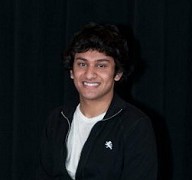
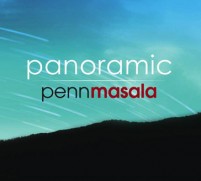
There are no comments
Add yours